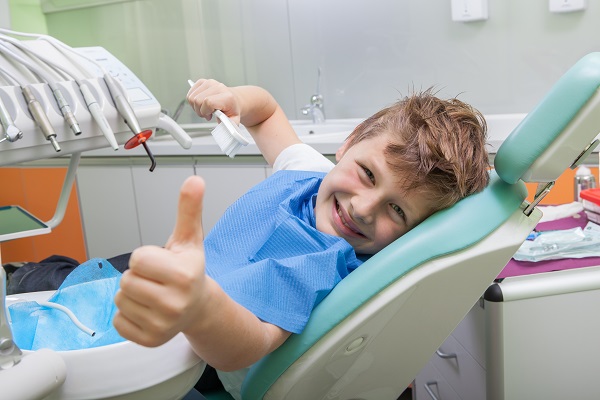How Many Baby Teeth Should My Child Have?

Baby teeth are quite fascinating. Whether you have an infant or plan to have a family at some point, teething is tough. For children, the process of teeth erupting hurts. For that reason, they cry, fuss, and drool a lot. Fortunately, there are ways to make the teething period easier for your child and you.
When do baby teeth first erupt?
Every child is different. While no age is set in stone, most have their first tooth by the age of six months. However, some infants cut the first tooth at three months. On rare occasions, children are born with one or more teeth. On the other hand, some babies do not get the first tooth until 15 months, sometimes older. Of course, parents with concerns should talk to a pediatric dentist.
Tooth buds keep developing under the gums even before the child is born. After birth, the teeth will maintain a schedule of when to emerge. A while after their eruption, baby teeth will start to fall out to help permanent teeth erupt. A normal, healthy baby’s first tooth will appear at three months old or even after the child’s first birthday. Here is a schedule of baby teeth emergence:
- The low central incisors appear at six to 10 months. This is when teething starts. The baby’s gums are often red and swollen. The middle teeth on the bottom front of the dental arch will be the first to erupt. Studies show that girls get their first teeth ahead of boys.
- The upper central incisors appear at eight to 12 months.
- The upper incisors at the sides appear at nine to 13 months. These are right next to the central incisors. These may look a little like Tic Tacs.
- The lower incisors at the sides appear at 10-16 months.
- The upper first molars will appear at 12-19 months. These wider teeth leading to the back of the mouth erupt on the upper dental arch.
- The lower first molars will appear at 14-18 months. These are the counterparts of the upper first molars. This is when the baby can start chewing.
- The upper canine teeth will appear at 16-22 months. These are the upper cuspids that fill the gap between the first molars and the incisors.
- The lower canine teeth will appear at 17-23 months.
- The lower second molars appear at 23-31 months. These are the teeth at the back, next to the first molars.
- The upper second molars appear at 25-33 months. These are the final teeth to appear.
What is the normal number of baby teeth?
Baby teeth are already under the gums at birth. However, they do not begin to erupt until about six months of age. The central incisors or front teeth typically come in first, starting with the bottom and then the top. Then around nine months, the lateral incisors erupt. In this case, it is common for the upper teeth to appear first, followed by the lower ones. From then to about 33 months of age, all baby teeth are out.
In total, there are 20 baby teeth. That means for roughly 33 months, both child and parents go through periods of teething. A pediatric dentist will likely recommend some type of teething ring for the baby to gnaw on. That puts pressure on the gums, helping the teeth erupt while decreasing pain. If necessary, a parent can give the child over-the-counter pain medication as directed by a pediatric dentist.
Interesting facts about baby teeth
Throughout the 33-month teething process, a child loses baby teeth. As those fall out, permanent teeth begin to appear. However, instead of throwing out baby teeth, parents should keep them. Then ask a pediatric dentist to remove the pulp inside of the teeth. Why does that matter? The reason is the teeth contain valuable stem cells.
Parents can then opt to keep the pulp of the baby teeth in a tooth bank. If, at some point, a child develops a serious illness, the stem cells could prove life-saving. Another interesting fact is that baby teeth help a child learn to talk. Without them, forming words correctly would be impossible.
Baby teeth serve a specific purpose. They work as placeholders for the adult teeth that will eventually come in. For that reason, baby teeth have the correct spacing required. Baby teeth even help with digestion. Simply put, the chewing motion aids in an infant’s digestive process.
Talk to a pediatric dentist if you have concerns
When your child begins to teeth, it is important to show a lot of love and patience. After all, having a baby tooth come in is no walk in the park. Talk to your pediatric dentist about steps you can take to make the process easier. While sometimes frustrating, this is a natural part of growing up. Before you know it, you will have an adult child with 32 permanent teeth.
Request an appointment here: https://camelbackpedoortho.com or call Camelback Pediatric Dentistry & Orthodontics at (602) 595-3531 for an appointment in our Phoenix office.Check out what others are saying about our dental services on Yelp:
Baby Teeth in Phoenix, AZ.




